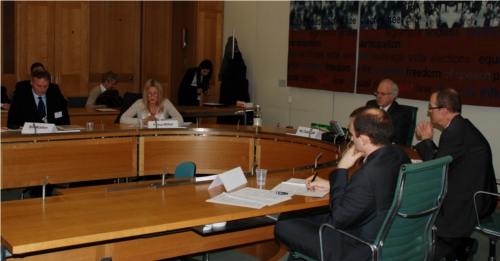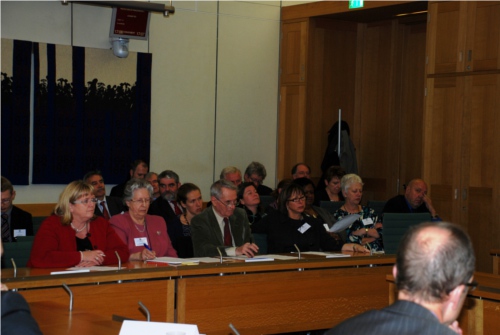Ofsted’s report, Moving English forward, published on 15th March 2012, sets out to answer the question: how can attainment in English be raised in order to move English forward in schools?
The report refers to the APPG for Education’s recommendations, in particular noting:
72. …The All-Party Parliamentary Group for Education recently reported that ‘schools should be developing cross-departmental strategies to develop literacy’ and recommended that Ofsted should look ‘more closely at this’. In response, Ofsted has produced training materials for all inspectors and will be evaluating the extent to which schools can demonstrate a whole-school commitment to improving pupils’ literacy during whole-school inspections…
113. The All-Party Parliamentary Group for Education has also reported:
‘Teaching methods should bring pleasure and reward to children, including to those who are just beginning to make sense of the letters on the page. The teachers who responded to the Inquiry felt that unless children have developed as readers in the fullest sense and are personally motivated to read, they will not progress beyond Level 3 or 4 by the age of 11, and their reading capacity could even regress… The active encouragement of reading for pleasure should be a core part of every child’s curriculum entitlement because extensive reading and exposure to a wide range of texts make a huge contribution to students’ educational achievement.’
Given that Ofsted made similar recommendations in its 2005 report, it is clear that schools have been slow to take appropriate action. One reason is that national tests and examinations do not in general assess pupils’ wider reading skills…
146. The All-Party Parliamentary Group for Education also expressed concerns about secondary literacy.
‘In the APPGE’s survey, secondary school teachers identified 57% of their pupils as having weak or very weak literacy skills, compared to the significantly lower 39% of pupils identified by primary school teachers. Nevertheless, across secondary schools, only 6% indicated that there should be a change in the extent to which literacy is incorporated into lessons. Instead, secondary school teachers were more likely to prefer the option of one-to-one support for struggling pupils. This suggests that it is more difficult for secondary schools to tackle literacy as a distinct issue.’
This suggests that many secondary teachers do not even accept that they have a responsibility for improving literacy within their own subject. Given the expectation in the revised Teaching Standards that all teachers will promote literacy and the use of Standard English, it seems clear that more effective training is now needed in many schools…
148. The All-Party Parliamentary Group for Education goes on to make the point that:
‘Headteachers are perhaps not accountable enough for literacy levels in secondary schools. Amongst Inquiry respondents, there was a strong feeling that a consistent whole-school approach was missing and many subject teachers were reluctant to admit that literacy is within their remit. Despite training and INSET, literacy is still seen as the responsibility of the English department rather than a whole-school issue, particularly in terms of assessment. Non-English subject teachers do not assess literacy, creating the danger that students view it as a skill which only matters in English lessons.’
The new inspection schedule should have the effect of increasing the profile of literacy across schools and encouraging headteachers and other senior leaders and managers to take a more active role in training and evaluating practice, as envisaged above.
Ofsted’s findings are based principally on evidence from inspections of English between April 2008 and March 2011 in 268 maintained schools in England. Part A highlights the main strengths and weaknesses in English and presents the evidence from the survey inspection visits. Part B draws on this inspection evidence to analyse 10 areas of weakness and recommend appropriate action to improve practice in each area.


